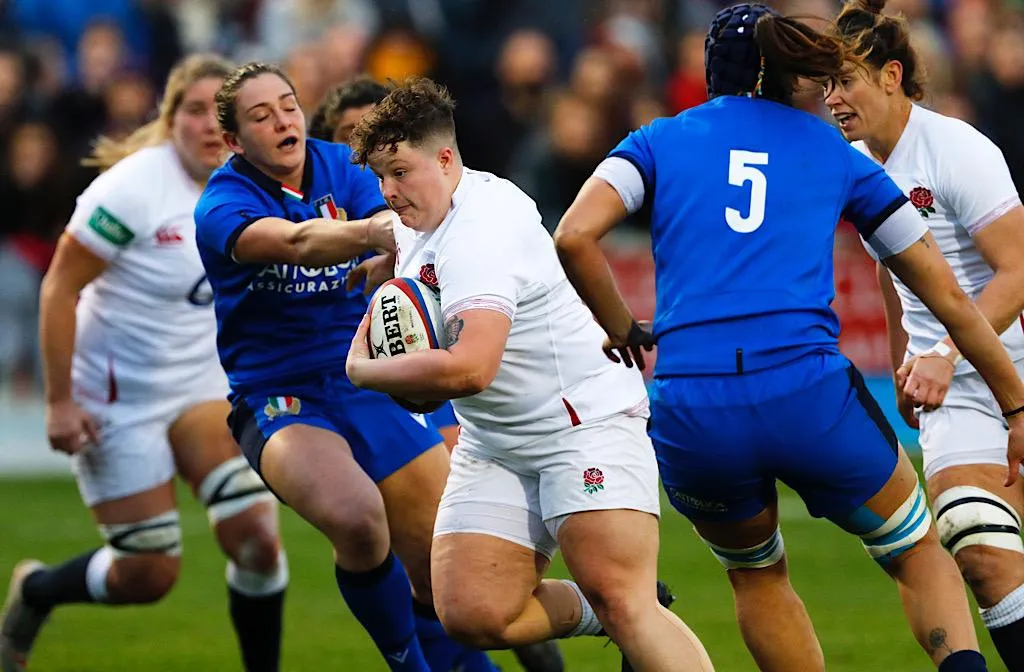
Unequal Impact: Why Concussions Hit Women Harder (And What We Can Do About It)
Unequal Impact: Why Concussions Hit Women Harder (And What We Can Do About It)
Concussions are a serious concern in contact sports like rugby, affecting athletes of all genders. However, a growing body of research reveals a troubling reality: concussions often affect women differently and can lead to more severe and prolonged symptoms compared to men. Understanding these disparities is crucial for improving diagnosis, treatment, and prevention strategies to protect female athletes.
While the exact mechanisms behind these differences are still being investigated, several contributing factors have been identified:
1. Hormonal Influences:
Emerging research suggests that hormonal fluctuations play a significant role in concussion outcomes. Estrogen and progesterone, the primary sex hormones in women, are known to influence brain structure, function, and recovery processes [1]. Studies have shown that women are more likely to report increased symptoms of anxiety and depression following a concussion, which may be linked to hormonal changes [2]. Further investigation is needed to fully understand how these hormones interact with the brain following a head injury.
2. Neck Strength and Biomechanics:
Women generally have smaller and weaker neck muscles than men, which may contribute to a higher risk of concussion. A weaker neck provides less support for the head during impact, potentially leading to greater acceleration and rotational forces on the brain [3]. This biomechanical disadvantage, combined with differences in head-to-neck ratio, could explain why women are more vulnerable to concussion in contact sports.
3. Reporting Bias and Symptom Perception:
It's important to acknowledge that reporting bias and differences in symptom perception could also contribute to the observed disparities. Women may be more likely to report symptoms of concussion, such as headaches, dizziness, and fatigue, compared to men. This could be due to societal expectations, differences in pain tolerance, or a greater awareness of their own bodies. While this may not fully explain the observed differences in concussion outcomes, it's a factor that should be considered.
The Data Doesn't Lie:
Numerous studies have confirmed that women often experience more severe and prolonged concussion symptoms than men:
A 2015 study published in the Journal of Athletic Training found that female athletes took significantly longer to recover from concussions compared to their male counterparts [4].
Research presented at the American Academy of Neurology's 2017 annual meeting showed that women with concussions had more severe symptoms and a greater risk of persistent post-concussion syndrome [5].
A 2020 meta-analysis published in Sports Medicine concluded that female athletes report a higher incidence and severity of concussion symptoms compared to male athletes [6].
Beyond Rest: Proactive Strategies for Protecting Female Athletes
Given the unique challenges that concussions pose to women, it's crucial to implement targeted prevention and management strategies. These include:
Neck Strengthening Exercises: Building strength and stability in the neck muscles can help to reduce the impact forces on the brain during collisions.
Proper Technique Training: Emphasize safe tackling and blocking techniques to minimize the risk of head injuries.
Pre-Season Baseline Testing: Conduct comprehensive baseline assessments of cognitive function, balance, and vision to provide a reference point for evaluating concussion severity.
Prompt Recognition and Removal from Play: Educate coaches, athletes, and parents about the signs and symptoms of concussion and ensure that athletes are immediately removed from play if a concussion is suspected.
Individualized Rehabilitation: Implement a tailored rehabilitation program that addresses the specific needs and symptoms of each individual athlete.
Empowering Female Rugby Players with LiftHer Strength App
I created the LiftHer Strength App because I recognized the urgent need for female-specific training resources, particularly in the area of injury prevention. My app includes specialized neck strengthening and stability exercises designed to:
Reduce the risk of concussion by building a "shock absorber" for the head and brain.
Improve balance and proprioception to enhance stability on the field.
Enhance neuromuscular control to improve reaction time and head control during impacts.
In addition to neck strengthening exercises, the LiftHer Strength App provides comprehensive training programs tailored to the unique needs of female rugby players, including cycle syncing guidance, injury prevention protocols, and performance optimization strategies. We are dedicated to empowering female athletes to take control of their health and dominate on the pitch, safely and effectively.
It's time to acknowledge that concussions affect women differently. By understanding the underlying mechanisms and implementing targeted prevention and management strategies, we can protect female athletes and ensure they have the opportunity to thrive in the sport they love.
Download LiftHer Strength App today and experience the difference! Get Started for FREE!!
References:
Del Rio et al, 2018: Steroid Hormones and Their Action in Women's Brains: The Importance of Hormonal Balance
American Society of Anestheologists, 2023 - https://www.asahq.org/about-asa/newsroom/news-releases/2023/10/women-at-much-higher-risk-of-depression
Leung et al, 2025: Neck strength deficit is a risk factor for concussion in high school rugby union and rugby league players
Covassin et al, 2015: Sex Differences in Reported Concussion Injury Rates and Time Loss From Participation
2017 American Academy of Neurology research: https://www.aan.com/PressRoom/Home/PressRelease/1529
McGroarty et al, 2020: Sport-Related Concussion in Female Athletes: A Systematic Review
